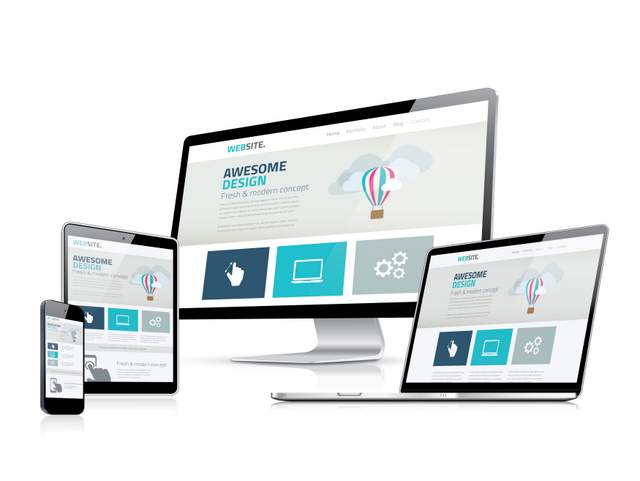The life of digital nomads is surreal. Many people want to know how to embark on this lifestyle and have plenty of questions. In these days of the internet, when the amount of websites is still steadily increasing at an exponential rate, it’s not too big of a stretch to ask – why not become a web developer when pursuing a digital nomad lifestyle?
Well, since the question comes from younger as well as older generations, I thought I’d dedicate this article to explore the web development career. Anyone interested in digital nomadism life is always willing to learn. Regardless of your age, learning web development is one of those highly achievable life goals. In this era, when the big data economy transitioned quickly into the mega big data economy, there is no telling just how easy and fulfilling it can be to embrace the career of web development.
In this piece, we shall explore the concept of web development and define who web developers are. We shall also interrogate the different roles that web developers play in setting up ad configuring the trend of globalization and e-commerce. We shall seek to understand what makes web development so compatible with the digital nomadism lifestyle as well.
How does digital nomadism suit the life of a web developer? What type of web developer should I work towards becoming? How easily can I transition my career into web development? Well, since this topic may be new for some of you guys, how about, we start from the basics? If you are already a web developer, how about hanging on to understand how you can transition your life into a more fulfilling life of travel, networking, and financial freedom? I bet you’ll learn how the nomadic lifestyle can grow your career more than you ever thought. Additionally, maybe you’ll learn how to be happier and to use your time improving your health and sense of adventure.
Web Development Background

Who Is A Web Developer?
A digital nomad web developer is a person who lives the digital nomad lifestyle while their work focuses on web development. Web developers program the code that tells websites how they should function. Website definition: a set of related web pages and multimedia content located under one domain. Even though a website typically constitutes of the hosting package, domain name, and content management system (CMS), web developers only build the CMS from scratch.
Every business, social, or political institution needs a website that portrays its products, portfolio, and agenda in a coherent, professional, and appealing manner. Since they are all different, their websites are also different in design and function. Web designers work with clients to write instructions in human language detailing how a website should look and function. The human language cannot render into website function because computers speak computer languages. Therefore, web designs must be interpreted into computer languages, and that is basically what web developers do. They develop the codes, in computer languages, that tell computers, servers, and web browsers how to display and interact with websites.
Web developers must ensure that websites aren’t too simple to the extent of boring advanced users or failing to deliver the functionality required by clients. However, no matter which complex clients’ demanded functionality, maybe, they shouldn’t also be so complicated that they intimidate end users. That is why web developers must be in back and forth communication with clients or the client’s web designers. Sometimes, web developers double up as web designers or play advisory roles to clients whose designing may be wanting. Fortunately, physical meetings aren’t always a must, thanks to modern-day video conferencing, internet voice calls, and text communications.
Parts and Types of Web Development
There are three aspects of web development that make excellent websites for seamless functioning. The first aspect relates to the code that developers write instructing web browsers on what to display when clients visit particular pages. The code allows users to view information that is arranged for easy access and viewing. The second aspect entails the code that executes functionality on the webserver. The code majorly empowers website administration and management, including the posting and editing of content as well as the collection of user data. The third aspect entails the code that instructs how the CMS executes database technologies for smooth and efficient website functionality. A competently developed website should incorporate these three aspects, coherently and seamlessly.

Which Type of A Web Developer Should I Work towards Becoming?
When you decide to embark on the web development career, you can’t develop comprehensive websites with the three aspects that I’ve explained. You need to progress from the basics and become a master in the fullness of time. However, you can decide to start as either a front-end or back-end programmer. Starting is always the most crucial bit, and it is rewarding in that it leads to empowering growth.
Front-End Developers
Front-end developers write the code that instructs web browsers how to display a website. They implement the aesthetic design of a website for the sake of delivering impressive and efficient user experience. Typically, front-end developers concern themselves with how users interact with the site rather than how the clients administer the website’s function.
Typically, the significant roles of front-end developers include:
- Ensuring that content is displayed clearly and placed strategically on the display
- Configuring colors, themes and text formats for optimal message delivery
- Formatting all inbound and outbound links as well as internal buttons for responsiveness
- Making sure the website is compatible with different media types
If you’d like to be a front-end designer, an excellent place to start, you should learn the most basic computer languages. Strive to be fluent in HTML, CSS, and JavaScript. HTML is great for adding content to websites as well as splitting the content into relevant formatting styles such as headers, subheaders, paragraphs, and tables. Learning the CSS language will further enhance your coding skills and allow you to style the content with color, size, and border manipulations. The JavaScript language will complete your front-end development skills by empowering you to add interactive features on the website, such as push buttons.

Back-End Programmers
Back-end developers deal with the server end of websites. They create the codes that instruct the CMS on how to handle databases and functionality applications. The back-end developer creates a code that helps the client to obtain critical information from users as well as one that allows the user to manage information presented to the user. For example, it is the back-end programmer that empowers the client to collect and process payments from users who input payment details when paying for products. The payment processing requires programs and applications that the back-end programmer codes for such functionality. Codes that allow data protection and encryption are also server-based. Another example of server-based features includes capturing end-users’ contact information through form-prompts.
Typically, for the user-face of a website to function, a back-end programmer must create the proper server-based functionality through coding. Back-end programmers create the technology necessary for such clean, efficient, and fast utility. For this reason, back-end programmers are critical to the SEO of the websites that they create.
Since back-end programmers create programs with more advanced utility than front-end programmers, they must be fluent in more complex computer languages. They may have to blend fluency in PHP, Python, Java, and Ruby. Since database management is part of the server-based utility, back-end programmers often have to be fluent in SQL as well.
By relying on recommendations from my numerous digital nomad web developer contacts, I’d advise that you start by learning front-end web development before transitioning into back-end web development.
Full-Stack Developers
Guess what, if you master front-end and back-end web development, you typically morph a full-stack web developer. Full-stack web developers have the competency to build an entire website from scratch to competition, with full UI and server-based functionality, without the help of other developers. Back-end and front-end developers cannot build entire websites on their own, and they must work in teams or outsource.
Even though it does not limit their employability, it does challenge their profitability. Clients have to hire front-end developers and then find back-end developers who can add functionality to the website framework. As feasible as that arrangement seems, a business model that has dominated web development in the past, it comes with several challenges. For starters, the process may lack to deliver top-notch seamless results. Also, clients often prefer hiring one firm that can provide full-stack development than work with different web development businesses for the same website.
Full-stack developers are playing an increasingly important role in the web development business. They also enjoy a more lucrative business compared to the other two types of developers. For massive projects that require the input of multiple developers, it is the full-stack developers that play the oversight and directorial roles. Therefore, apart from higher employability, full-stack developers always stand to earn more compared to their counterparts. I hope this answers the question regarding the type of a developer into which you should grow. It may take longer to become a full-stack developer, but they enjoy more freedom and higher pay. However, even competent front-end developers enjoy their freedom and high incomes. They can earn more than full-stack employers when they are highly specialized, immaculately branded, and strategically networked.
7 Reasons Why You Should Become a Digital Nomad Web Developer
#1. Web Development Is On High Demand
There is a reason why web development employment deals and contracts are so many out there that they top the list of Indeed.com job listings. In fact, according to the employment networking platform and directory, web development positions are also the hardest to fill. Coders are a rare breed; did you know that there are about 1.1 million job vacancies for web developers in the United States alone and less than 400,000 developers to fill them?

Well, every big and small business is moving to conduct digital trade via e-commerce sites. Most individuals are using websites as their portfolios, and most professionals have ceased writing CVs. Big corporations require huge websites that hire multiple developers to work on their sites, and even social institutions are forking out cash for quality websites.
As long as you master the web development craft, you can maintain a profitable career as a digital nomad web developer. You can always get paying clients from all over the world.
#2. Web Developers Are Free to Work Remotely
The great thing about web development is that it fosters a career that is free of geolocation constraints. Web development is a result-based enterprise that focuses on the timely delivery of products and services as opposed to brick and mortar presence. Most web development firms hire developers on a remote basis. As long as you have a laptop and reliable internet and electric connections, you can work from anywhere you want. You can decide to move from one continent to the other while still working on a project if the time allows you to do it.
#3. You Don’t Need a Degree
Do you know the biggest coder employer in the world? It’s Google, and the tech giant announced it stopped using degrees to qualify viable web development employees. No client will ever ask you for your academic qualifications when ordering web development services. The industry wants you to prove your skills. It is the kind of freedom that makes a digital nomad web development career so feasible; you don’t have to use money and almost four years tied down to a learning institution. You can always learn online coding while on the move.
#4. Digital Nomad Web Developers Earn Impressively
Did you know that web developers in the United States, according to the U.S. News & World Report, earn an average of $64,970? Average mostly concerns developers with one or two years’ worth of experience. Guess what well-established developers with high specialization and extensive networking get? Please remember that the average household income in the United States stands at $56,516.
#5. It’s Creative and Fun
Web development is a creative process as much as it is functional and hands-on. If you can couple it with the traveling of a digital nomad, you will never run out of ideas. You will find yourself creating for-sale codes that are based on clients’ innovations and instructions. Such products sell so much that you could end up making more than you ever anticipated.
#6. Web Development Offers Low-Cost Entry Barriers.
Seriously speaking, web development is one of those careers that call for the least financial investment. All it takes is time, and acquiring the skills doesn’t even take as much time as universities and colleges consume. You can start learning how to code by watching as many tutorials on coding as you can. Most of the resources needed to learn are available for free online. Apart from videos, you can read the numerous publications that coding pros out there are churning out daily. For supervised learning, you can pay for coding boot camps that last about 13 weeks.

#7. You Can Create Your Own Website as Advertising for New Projects
If you have become a digital nomad web developer, to continue this lifestyle, you need to find new projects constantly. It means that you need to promote your skills, apply for new projects, and negotiate.
By creating your own website (naturally free of charge to yourself), you have the perfect way to show your skills and portfolio of experience. By doing this, you will have the edge over the competition and win more projects.
How Easily Can I Transition My Career into Web Development?
Did I mention that it can take you less than 14 weeks to learn web programming? Well, you should also know that it calls for a lot of practice. The great thing about the life of digital nomad web developers is that they get expertise by doing lots of projects, having the experience of doing those projects and building a brand and reputation. For starters, I’d advise you to make your own website.
Design it, make it for you, to package yourself as a professional, passionate, and proficient web developer. Brand yourself favorably and present the products that you plan to be offering. When you pitch your services, your website will serve as a reliable backup to present your web development portfolio, and your clients will desire the edge it gives your business for their commercial agenda as well.
As you progress, you can also design other web products that you can sell to your clients and display them on your advertising website. You will be harnessing your potential and expanding it at the same time through simultaneous practice and marketing. Ultimately, you will start picking up clients. The best way to always get you more clients is by serving the existing ones diligently, reliably and politely.
Final Thoughts
As you move from city to city, state to state, country to country and continent to continent, take advantage of your travels and your expertise in web development. Visit different businesses in the places where you visit and pitch them your ideas. Also, make sure that you visit as many web development firms as you can in those different locations.
Make friends with your fellow digital nomads at shared living or working spaces. Digital nomads are always in need of websites, even though most don’t know it. Tell them the importance of websites for their nomadic careers. They are great and enthusiastic learners. One thing is for sure; you will always get jobs as a digital nomad web developer as long as you put in considerable effort.
I’m the owner of Digital Nomad Explorer. I’ve traveled to over 50 countries and been an expat in Scotland, Finland, and China. I was a digital nomad while having my own robotics company and traveled throughout Europe and China working remotely. Currently, I’m location independent with a home base in Kirkkonummi, Finland.
